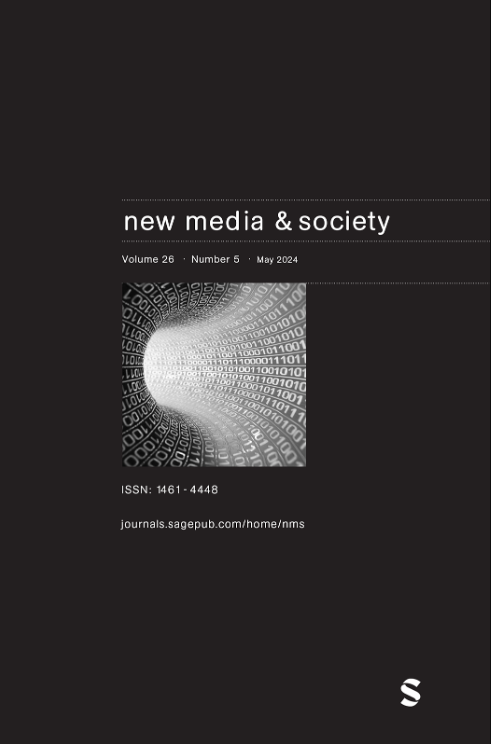仇恨分享:关于仇恨分享的普遍性及其对 Gab 影响的案例研究
IF 4.3
1区 文学
Q1 COMMUNICATION
引用次数: 0
摘要
本文将文学和文化研究的框架与网络科学的方法结合起来,探讨政治传播研究的一个核心话题:两极分化。最近的研究质疑了数字 "回声室 "通过阻止成员接触多样化的信息和观点而加剧两极分化的论点。我们以极右翼社交媒体平台 Gab 为案例,进一步证明了即使是高度两极分化的公众也会参与 "交叉讨论"。不过,我们提出了一个独特的概念--仇恨分享,即以反对或诋毁为目的的内容分享。我们的研究表明,仇恨分享在 Gab 上很常见。此外,与其他类型的分享相比,仇恨分享与更强的社区结构相关联,并且似乎对那些参与仇恨分享的人产生了更大的影响。我们将这些发现解释为社交网络激励网络愤慨的产生--"憎恨 "链接内容与憎恨融为一体。本文章由计算机程序翻译,如有差异,请以英文原文为准。
Hate-sharing: A case study of its prevalence and impact on Gab
This article brings frameworks from literary and cultural studies and methods from network science to bear on a central topic in political communication research: polarization. Recent studies have called into question the argument that digital “echo chambers” exacerbate polarization by preventing members from encountering a diversity of information and opinions. Using Gab, a far-right social media platform, as a case study, we offer further evidence that even members of highly polarized publics do engage in “cross-cutting.” However, we develop a distinct concept of hate-sharing, or sharing content for the purpose of disagreeing with or denigrating it. We show that hate-sharing is common on Gab. Moreover, it is associated with stronger community structure than other kinds of sharing and appears to confer substantially greater influence on those who engage in it. We interpret these findings as evidence that social networks incentivize the production of networked outrage—where “hating on” linked content merges with hate.
求助全文
通过发布文献求助,成功后即可免费获取论文全文。
去求助
来源期刊

New Media & Society
COMMUNICATION-
CiteScore
12.70
自引率
8.00%
发文量
274
期刊介绍:
New Media & Society engages in critical discussions of the key issues arising from the scale and speed of new media development, drawing on a wide range of disciplinary perspectives and on both theoretical and empirical research. The journal includes contributions on: -the individual and the social, the cultural and the political dimensions of new media -the global and local dimensions of the relationship between media and social change -contemporary as well as historical developments -the implications and impacts of, as well as the determinants and obstacles to, media change the relationship between theory, policy and practice.
 求助内容:
求助内容: 应助结果提醒方式:
应助结果提醒方式:


